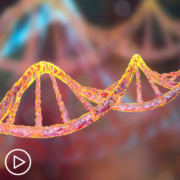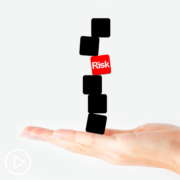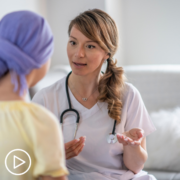Managing CLL Side Effects | Innovative Strategies and Approaches
Managing CLL Side Effects | Innovative Strategies and Approaches from Patient Empowerment Network on Vimeo.
What can chronic lymphocytic leukemia (CLL) HCPs consider for innovative ways to manage CLL side effects? Experts Dr. Jennifer Brown from Dana-Farber Cancer Institute and Dr. Callie Coombs from the University of California, Irvine discuss strategies for drug interactions, neutropenia, headaches, and other side effects.
Download Resource Guide | Descargar guía de recursos
Related Resources:

How Can CLL HCPs Gain More Understanding of Mutation Profiles? |

CLL Expert Updates on Diagnostic Tool and Technology Advances |

CLL Clinical Trials for Molecularly Defined Patient Subgroups |
Transcript:
Dr. Nicole Rochester:
Along with therapies, of course, come potential side effects. Are there any strategies that you can share with our healthcare provider audience around innovative approaches or protocols that have been implemented to mitigate and manage the CLL side effects from the treatment?
Dr. Callie Coombs:
I think it comes down to your internal resources, but I would say taking care of CLL patients is clearly a team effort. And so it’s not just me, but also a team of additional practitioners that I work with. So I’d like to emphasize how important pharmacists are because I’ve definitely seen some side effects that come about because a patient is now on a medication that interacts with whatever their CLL therapy is, which drives up the levels of the drug and then brings out certain toxicities so they can help us identify these if, perhaps I missed it or didn’t ask the patient about a supplement, et cetera.
Next is nurse practitioners and oncology nurses. And so number one is it’s a team-based approach, and I think it’s certainly very important to have protocols internally. But also to just realize what the common toxicities are and how can we mitigate these.
One of the most common reasons that I’ve seen for patients stopping a drug prematurely actually is venetoclax (Venclexta). It very commonly causes neutropenia. And I’ve seen the drug given up on very early without any growth factor support, and so I think if you become educated and experienced with using drugs, you can realize there’s very clear strategies in improving patients with neutropenia, by supporting them with growth factor and getting them through whatever their defined plan course of venetoclax may be.
And then BTK inhibitors have a whole smattering of side effects as well where perhaps working with cardio oncologists can help in addition to other strategies depending on exactly what side effect the patient may encounter. So in summary, definitely a team-based effort and growing experience with the common side effects helps I think all comers with strategies to help prevent or mitigate such side effects.
Dr. Nicole Rochester:
Thank you so much, Dr. Coombs. Dr. Brown, do you have some additional best practices you’d like to share with regard to the management of treatment side effects?
Dr. Jennifer Brown:
Well, I agree completely with Dr. Coombs. I would just add that I think it helps a lot when you warn the patients ahead of time about things that may happen but that often go away or that you can manage. So, for example, headaches often happen early on when you initiate acalabrutinib (Calquence) but they go away typically very quickly. And so if patients know that, then they’re much less worried, and then you can talk to them about the strategies, because caffeine or acetaminophen (Tylenol) will often help with that. If you warn them that they may have some joint aches or pains, that can also help, since those are often transient.
With venetoclax, warning them about some nausea or diarrhea, and then we often manage that by subsequently moving the drug to the evening after they’re done with their ramp up, or initiating an antiemetic, things like this. And then oftentimes many patients who have that in the beginning, it doesn’t persist throughout the whole time that they’re on the drug. Sometimes the diarrhea may, but many times it doesn’t. So getting the patients through that early phase with the close management, which again, it helps, have your team help with that, the nurse practitioners, et cetera, and then hopefully things settle out and everyone’s happy.
Dr. Nicole Rochester:
Wonderful. I just want to emphasize two things. One that each of you said. One is this idea of a team-based approach, which is important in the treatment of all diseases, but of course very important in the treatment of the cancer. And also this idea of educating our patients so that they know ahead of time what to expect and really involving them as part of the team. So I really appreciate those, both of those points.






